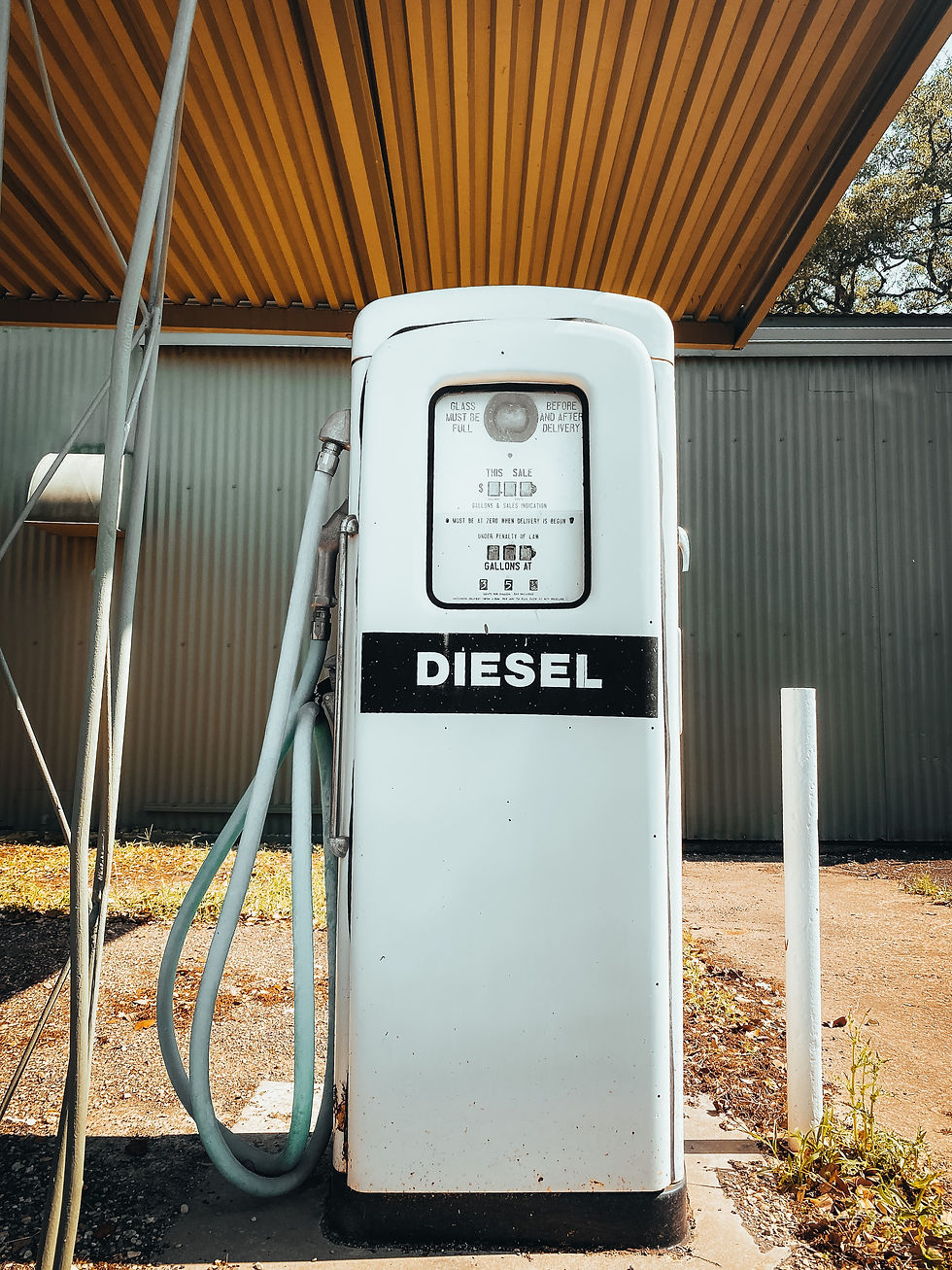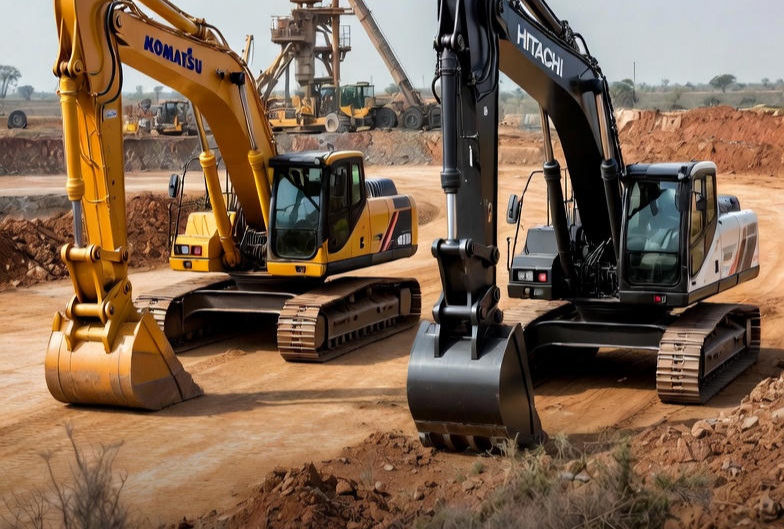Optimizing Fuel Efficiency in Excavators with OEM Engine Components
- RALPH COPE

- Sep 1
- 3 min read

Fuel costs are one of the biggest operating expenses for any construction or mining company. Excavators, with their powerful diesel engines running for hours on end, consume vast amounts of fuel. Even small improvements in efficiency can lead to substantial savings over time.
But optimizing fuel efficiency isn’t just about operator habits or jobsite planning—it often starts at the heart of the machine: the engine and its critical components.
In this blog, we’ll explore:
Why fuel efficiency matters in modern excavator operations
Key engine components that directly impact fuel consumption
How OEM (Original Equipment Manufacturer) parts maximize efficiency
The risks of using non-OEM engine components
Best practices for reducing fuel costs with reliable parts
How Vikfin supports your fuel efficiency goals
1. Why Fuel Efficiency Matters
Fuel efficiency is about more than just saving money—it’s about competitiveness, sustainability, and operational success:
Cost Reduction: Diesel accounts for a significant portion of operating expenses.
Machine Longevity: Efficient engines experience less stress and wear.
Environmental Compliance: Lower emissions meet regulatory standards and improve public perception.
Profit Margins: Reduced fuel consumption means higher profitability on projects.
2. The Engine’s Role in Fuel Efficiency
An excavator engine is a finely tuned system. Every component, from the injectors to the turbocharger, plays a role in how efficiently fuel is burned to produce power.
Key contributors include:
1. Fuel Injectors
Injectors deliver precise amounts of fuel into the combustion chamber at exact timings. Poorly performing injectors lead to incomplete combustion, wasting fuel and increasing emissions.
2. Turbochargers
Turbochargers increase air intake, enabling cleaner and more efficient combustion. A worn or low-quality turbo reduces engine performance and fuel economy.
3. Air and Fuel Filters
Clean filters ensure contaminants don’t enter the system, maintaining optimal air-fuel ratios. Clogged filters force the engine to work harder, consuming more fuel.
4. Engine Control Units (ECUs)
Modern excavators use ECUs to optimize fuel delivery electronically. Non-OEM sensors or faulty controls disrupt this balance.
5. Exhaust Aftertreatment Systems
Systems like DOC, DPF, and SCR reduce emissions. Using the wrong parts here can cause backpressure and higher fuel consumption.
3. How OEM Engine Components Improve Fuel Efficiency
OEM components are designed to work perfectly with your excavator’s engine. They provide:
1. Precision Engineering
OEM injectors and pumps deliver fuel at exact specifications, ensuring optimal combustion and maximum power output per litre of fuel.
2. Durability Under Load
Construction sites are harsh environments. OEM parts withstand extreme pressures, temperatures, and contamination better than generic alternatives.
3. Compatibility with Engine Management Systems
Modern engines rely on precise sensor data to adjust fuel usage. OEM sensors and ECUs ensure accurate readings and efficient operation.
4. Reduced Downtime
Reliable parts mean fewer breakdowns and more time spent working, not refueling or repairing.
4. The Risks of Using Non-OEM Engine Components
While non-OEM or “will-fit” parts might seem cheaper initially, they often cost more in the long run:
Reduced Efficiency: Poorly machined parts don’t meet tight tolerances, leading to wasted fuel.
Increased Wear: Contaminants bypass inferior filters, damaging injectors and turbochargers.
Shortened Engine Life: Low-quality components accelerate wear, leading to costly rebuilds.
Warranty Voids: Many manufacturers refuse coverage if non-OEM parts are used.
Unplanned Downtime: Breakdowns from substandard parts halt production and inflate costs.
5. Best Practices for Maximizing Fuel Efficiency
1. Use Genuine OEM Components
It’s the most effective way to ensure your engine runs at peak efficiency.
2. Maintain Regular Service Intervals
Follow the manufacturer’s schedule for oil, filters, and component checks.
3. Keep Injectors and Turbochargers in Top Condition
Test and replace components before they degrade performance.
4. Monitor Engine Performance
Use telematics or onboard diagnostics to track fuel consumption and spot inefficiencies early.
5. Train Operators
Even the best engine parts can’t compensate for inefficient operating techniques.
6. How Vikfin Supports Your Fuel Efficiency Goals
At Vikfin, we help you save fuel and protect your bottom line with:
OEM Engine Components: Injectors, pumps, turbochargers, sensors, filters.
Quality Assurance: All parts tested to meet OEM specifications.
Expert Advice: Our team helps you identify components affecting efficiency.
Fast Delivery: Stocked parts in Durban and Johannesburg to minimize downtime.
Cost-Effective Solutions: Used OEM parts deliver factory performance without the new-part price tag.
Conclusion
Fuel efficiency isn’t just a “nice-to-have”—it’s a competitive advantage. By choosing OEM engine components, you ensure your excavator delivers maximum power with minimum fuel, saving money, reducing emissions, and keeping your projects on schedule.
With Vikfin’s range of genuine OEM engine parts, you can take control of fuel costs and keep your machines working at their best.
#FuelEfficiency#ExcavatorEngines#OEMExcavatorParts#HeavyEquipmentFuelSavings#ExcavatorMaintenance#ConstructionEquipment#TurbochargerMaintenance#FuelInjectorService#DieselEfficiency#EngineOptimization#HeavyEquipmentRepair#CostEffectiveOperations#MachineUptime#PreventiveMaintenance#HeavyEquipmentPerformance#MiningEquipment#VikfinParts#DurbanExcavatorParts#JohannesburgExcavatorParts#FuelCostReduction








Comments